Angola and Mozambique. Strategic allies for the UAE.
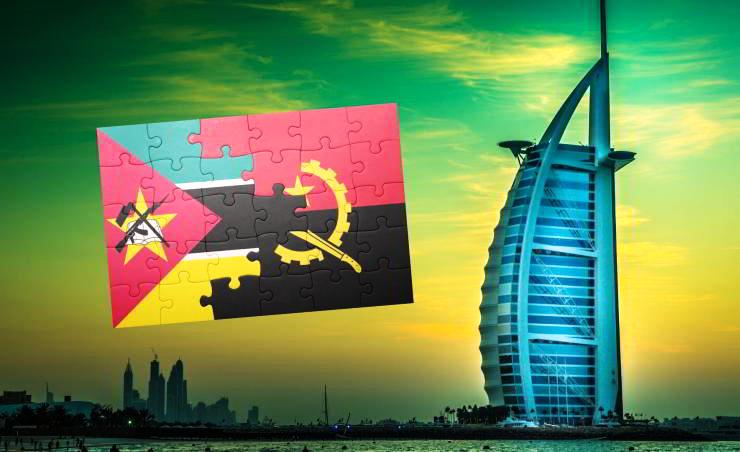
Angola, located on the Atlantic Ocean, and Mozambique, on the Indian Ocean, are becoming increasingly important partners for the United Arab Emirates in Africa.
In the case of Angola, the United Arab Emirates is deepening economic ties, promising significant investments in crucial sectors such as energy, technology and maritime logistics. This is written by Albert Vidal Ribe, a military and defence analyst at the International Institute for Strategic Studies (IISS), a think-tank based in London.
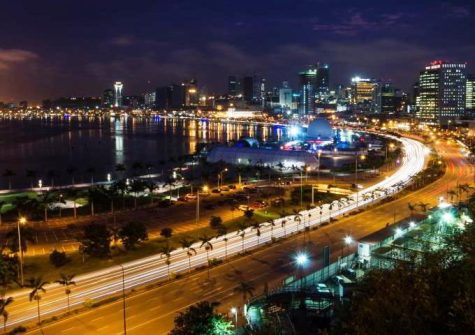
The capital city of Luanda and its seaside at night
In return, Luanda offers them “greater food security, a growing market and the opportunity to strengthen their regional influence in a context of declining Chinese investment”. Bilateral relations have been consolidating since 2021, thanks to the investment potential of Angola, the sixth largest economy in sub-Saharan Africa, with rapid population growth and in “frank recovery” after having faced a severe recession in the late 2010s, the IISS analyst emphasises. Nothing seems to discourage Angolan leaders, not even the fact that the emirate of Dubai, synonymous with luxury and opulence, where Isabel dos Santos has been living on an artificial island since 2020, refuses to extradite the daughter of a former president for whom an arrest warrant has been issued after the seizure of her bank accounts.
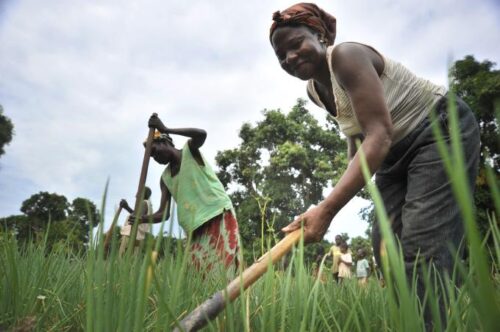
Angola has “fertile soil and a favourable climate”. Photo Fao
In agricultural terms, Angola has “fertile soil and a favourable climate”, which allows the Emirates to diversify their food imports. In the field of mineral resources, Angola is not only one of the world’s largest diamond exporters (78%, or more than two-thirds, are sold to the United Arab Emirates), but also has “vast untapped reserves of critical minerals and rare earths, including copper, cobalt, manganese and lithium, all essential to the technological ambitions” of the country, which is described as “a new superpower in Africa”.
Regional infrastructure projects that pass through Angola, Albert Ribe said, should also “maximise the economic opportunities of the United Arab Emirates,” whose companies have been trying, not always successfully, to gain interests in the mines of Zambia and the Democratic Republic of Congo (DRC)” since 2022. The Lobito rail corridor, which links Angola to the former Zaire, could become “a primary export route” for Zambian and Congolese minerals.
Corvettes and ports
Other sectors in which the UAE has invested in Angola include telecommunications, public infrastructure, renewable energy and an innovative development project that, covering 2,000 hectares, will be “the continent’s first integrated industrial, commercial and residential hub”, according to Dubai Investments. This is facilitated by “personal relationships at the elite level”, Ribe points out, and a bilateral treaty signed in 2021.In the maritime sector, Abu Dhabi Ship Building (ADSB), part of the state-owned conglomerate EDGE, has won a contract worth more than a billion dollars to build a fleet of three R71 MKII corvettes at a UAE shipyard for the Angolan Navy, intending to protect the country’s 1,600 kilometres of coastline.
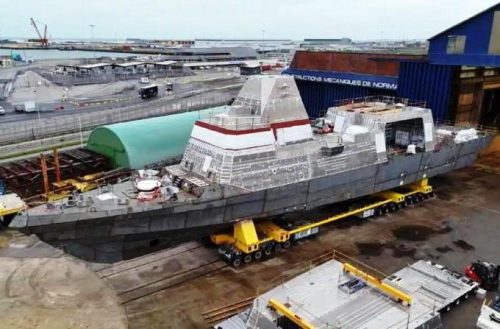
The first of three BR71 Mk II light corvettes for the Angolan Navy is seen at the CMN – Constructions Mécaniques de Normandie – shipyard in Cherbourg. Two will be manufactured in Cherbourg and one in Abu Dhabi. Courtesy of CMN
The order for the 71-meter vessels, capable of taking down targets at sea and in the air, was placed in 2023, the same year that two financing agreements were signed with the Abu Dhabi Export Credit Agency (ADEX). The first, worth more than $89 million, will support a data storage and analysis project; the second aims to restore and maintain street lighting in Luanda, Malanje, N’dalatando and Uíje, for a value of more than $33.6 million. In the port of Luanda, the largest and most important maritime infrastructure in the region, the UAE will control two terminals after Abu Dhabi-based AD Ports Group was awarded two concessions, each lasting 20 years. AD Ports Group will also be responsible for managing container movements in the African country’s giant logistics market. The UAE is also said to be interested in participating in the modernisation project underway at the Caio deep-water terminal, located in the port of Cabinda, the province where much of Angola’s oil comes from and where FLEC/FAC has been waging an armed struggle for independence for years.
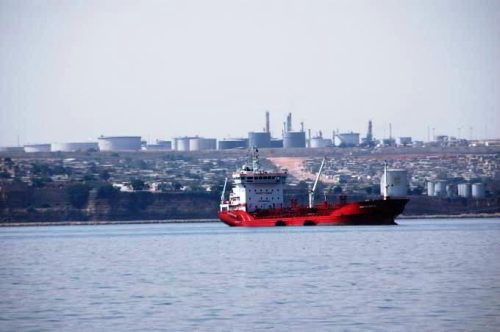
The UAE will control two terminals in Luanda’s port. File swm
The Chinese construction company CRBX is responsible for the work, worth more than $830 million. Angola’s goal may be to free itself from its “over-dependence” on Beijing (to which it owes between $17 billion and $42 billion, or 40% of its total debt), but the “overreliance” on the UAE, as Albert Ribe points out, “also entails risks”.
Since Angola is a country with “numerous socio-economic challenges”, where extreme poverty has increased by 82% in the last eight years and multidimensional poverty affects around 51.2% of the population, “there is no guarantee that the investments will be profitable”.
Gas, ports and solar energy
Like Angola, Mozambique is also one of the African states that attracts the interest of the United Arab Emirates and not even the installation of a new President of the Republic in Maputo has changed the situation.
In March, the new President Daniel Chapo, who replaced Filipe Nyusi, received the Foreign Minister of the United Arab Emirates to confirm the desire to continue a strategic partnership that has lasted
for over twenty years.
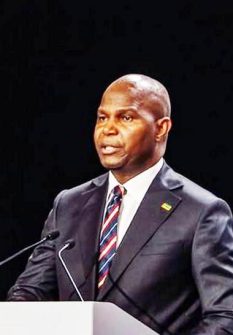
President of Mozambique, Daniel Francisco Chapo, Photo: Pres. Office.
The exploration of LNG in the Rovuma basin, operational from 2022 (first phase, Coral South) and in which the Emirati state oil company will participate, received a major boost in April, after the government of Maputo gave the green light to the development plan of the Coral North field, located in Area 4, which will allow the annual production of 3.5 million tons per year (Mtpa) of liquefied natural gas.
With a budget of $7.2 billion, the floating liquefied natural gas (FLNG) platform could start production (from six wells) in the second quarter of 2028 and is expected to operate for 30 years, the Mozambique Information Agency reported. The Coral Sul project, which is the second led by Italy’s ENI, involves US-based Exxon Mobil, China National Petroleum Corporation, Empresa Moçambicana de Hidrocarbonetos (KOGAS) and Abu Dhabi National Oil Company (ADNOC), which paid $880 million for Galp Energia’s 10% stake. In Cabo Delgado province, where the Rovuma River flows, Abu Dhabi authorities are also assisting in Mozambique in its fight against a jihadist rebellion that began in 2017.
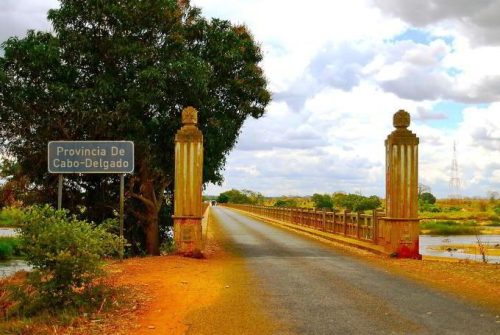
Road bridge over Rio Lúrio, the border between Nampula and Cabo Delgado provinces. Abu Dhabi will assist Mozambique in its fight against jihadist rebels.CC BY-SA 2.0/F Mira
The military aid was a result of a memorandum of understanding signed in 2022 to “cooperate in the fight against terrorism”, and took the form of armoured vehicles and trucks for transporting troops.
In the port sector, DP World, the multinational logistics company based in Dubai, which is expanding the container terminal at the port of Maputo (a concession valid until 2058, with an investment of 600 million dollars), intends to develop ports in other cities and create industrial parks in various regions to strengthen ties with neighbouring countries. It also plans to build a 125 MW photovoltaic plant in the Changara and Marara districts of Tete province, which will light up the homes of 150,000 families. This $150 million investment will involve the public company Hydropower of Maputo and the private company Amea Power of Dubai. With a series of projects ranging from agriculture to tourism, the UAE has become one of the five largest economic partners of Mozambique and Mozambique has become one of the priority markets of the UAE. (Open Photo: Dubai, United Arab Emirates and the national flag of Angola and Mozambique. 123rf)
Margarida Santos Lopes



